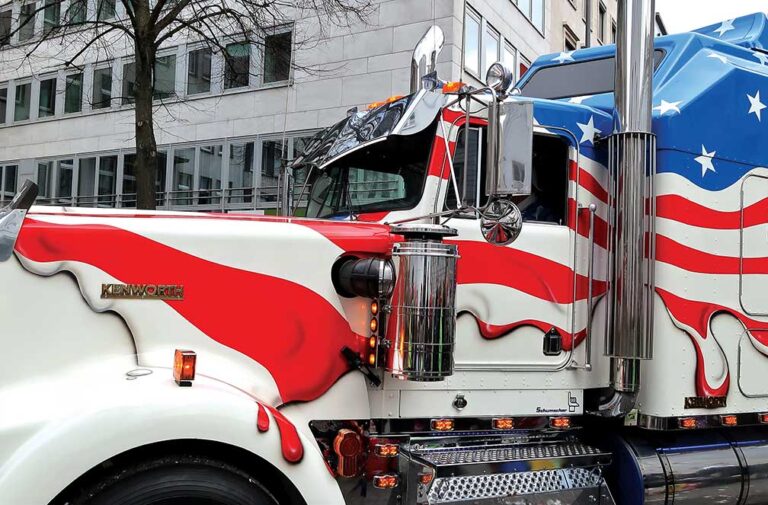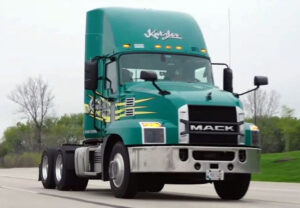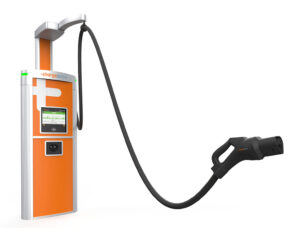Since the Modern Clean and Safe Trucks Act of 2023 was introduced in both the House (HR1440) and Senate (S694) in March 2023, there’s been little movement on the legislation.
The bill, if passed, would end the federal excise tax, commonly known as the FET, on the purchase of new big rigs — a move that’s heralded by many in the trucking industry as a major step forward.
The act was introduced by a bipartisan coalition of representatives and senators, led by Reps. Doug LaMalfa (R-CA), Chris Pappas (D-NH), Earl Blumenauer (D-OR), and Darin LaHood (R-IL) in the House, and Sens. Ben Cardin (D-MD) and Todd Young (I-PA) in the Senate.
Bill co-sponsor Pappas said that as a small business owner, he knows just how challenging it can be to operate a business and that every potential saving makes a difference.
The federal excise tax on purchases of new trucks adds, on average, nearly $25,000 to the cost of new equipment, slowing deployment of safer and more environmentally friendly vehicles, according to trucking industry leaders.
“Cutting the federal excise tax on heavy trucks and trailers will help America’s Main Street economy grow, address supply chain challenges and shortages, and lower costs for essential items that families need, including groceries and gas,” Pappas said.
The legislation “will also support the adoption of newer, safer, and cleaner trucks that reduce our dependence on foreign energy. I urge leaders in Congress to take up our bipartisan bill and act to provide immediate relief to small businesses and consumers alike,” he added.
The last movement on the bill in the House was on March 8, 2023, when it was referred to the House Committee on Ways and Means. Over in the Senate, the bill was read twice on March 8, 2023, and referred to the Committee on Finance.
Since then, there’s been no movement on either side of Congress.
As of now, there is no firm timeline in place for when the bill will next see movement, said Dave Heller, senior vice president of safety and government affairs for the Truckload Carriers Association.
“We would love to get (the FET repealed),” he said, adding that the tax on heavy trucks, instituted in 1917, was originally intended to support war efforts during World War I.
“That war is long gone,” he said. “Why are we still paying this on new equipment when in reality, it could encourage further incentive to purchase more modern tech, etc.? We need to encourage folks to get into the new vehicle game.”
Adam Blanchard, co-founder and CEO of Double Diamond Transport, Inc., describes the FET as outdated.
“It disproportionately impacts certain segments of industry,” Blanchard said. “There is a better way to get funds into the Highway Trust Fund than this tax. It’s difficult, especially at a time, too, when equipment costs have gone up 50% year over year. When you tack on this tax, it hammers our ability to afford equipment.
“Smaller fleets don’t have the same purchasing power as larger fleets,” he continued. “It certainly is a regressive tax that needs to be eliminated.”
The 12% tax on trucks is the highest-percentage excise tax levied on any product, according to the American Trucking Associations. This added expense acts as an impediment to creating jobs, reducing emissions, and improving highway safety.
“The current federal excise tax has become a barrier to our progress in encouraging cleaner and greener technology,” said Senate co-sponsor Cardin. “I am proud to support tax policy that enables … manufacturers to innovate and deploy cleaner and safer technologies in our trucking industry. Our legislation will spur growth and competitiveness while making our roads safer and less polluted.”
Albert Gore, executive director of the Zero Emission Transportation Association, said the tax harms American truckers and fleet operators by inflating the cost of heavy-duty trucks and limiting access to the many economic and public health benefits that come with transportation electrification.
“Medium- and heavy-duty trucks account for 24% of all transportation carbon emissions in the U.S. but represent only 4% of vehicles on the road,” Gore said. “It is time to accelerate our movement towards modernized transportation fleets, and we must enable our nation’s fleet operators and truckers to join in this effort.”
Steve Bassett, immediate past chairman of American Truck Dealers (ATD) and dealer principal of General Truck Sales in Muncie, Indiana, said dealerships in the state “commend Sen. Young for his leadership on this important legislation. Repealing the 106-year-old federal excise tax on heavy-duty trucks helps keep America competitive and is key to turning over an aging truck fleet.”
LaMalfa said that regulators want to shift operators from older trucks to newer models — but on the other hand, the tax penalizes them for trying to update their equipment.
“Repealing the 12% federal excise tax on heavy trucks and trailers will help all businesses reduce costs, address supply chain challenges and lower costs for essential goods for families, especially in rural areas,” LaMalfa said. “The federal excise tax has outlived its original purpose by more than a century.”
House co-sponsor LaMalfa noted that truckers are “an essential cornerstone in our supply chain, yet the tax code disincentivizes them from purchasing the most up-to-date equipment.”
“I’m urging Congress to support this common-sense, bipartisan bill and drop the burdensome tax preventing our truck drivers from having the most modern, highest technology, and safest equipment on the road,” he added.
This article originally appeared in the May/June 2024 edition of Truckload Authority, the official publication of the Truckload Carriers Association.
Born in Pine Bluff, Arkansas, and raised in East Texas, John Worthen returned to his home state to attend college in 1998 and decided to make his life in The Natural State. Worthen is a 20-year veteran of the journalism industry and has covered just about every topic there is. He has a passion for writing and telling stories. He has worked as a beat reporter and bureau chief for a statewide newspaper and as managing editor of a regional newspaper in Arkansas. Additionally, Worthen has been a prolific freelance journalist for two decades, and has been published in several travel magazines and on travel websites.






